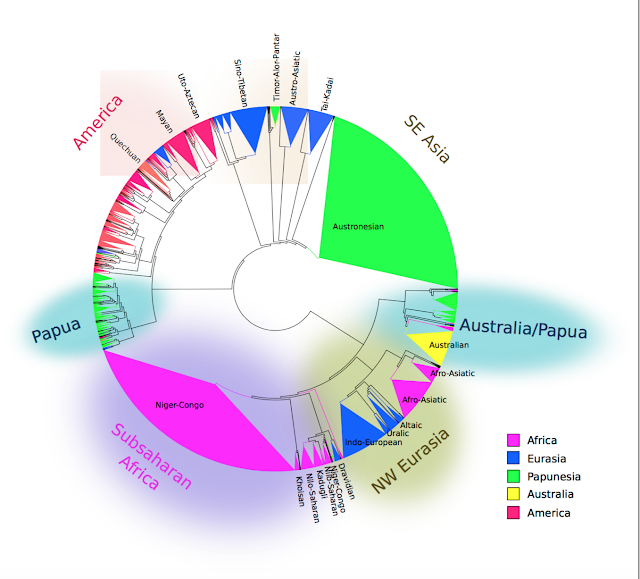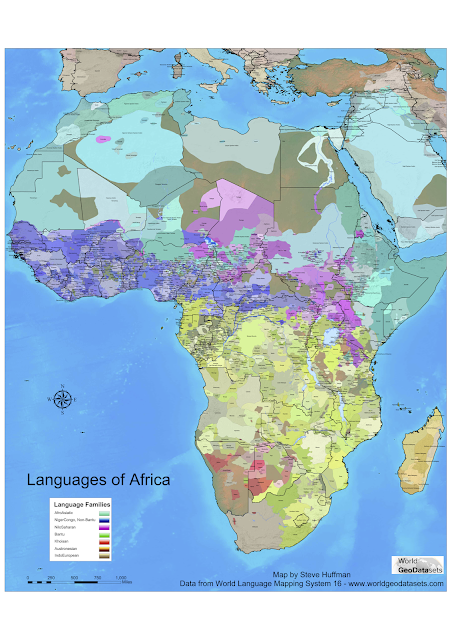Tips when looking for PhD positions or other jobs in linguistics
A few quick tips to people looking for jobs in linguistics, especially as students. I've recently been trying to help out some friends of mine who are looking for positions, and thought I'd perhaps share some quick tips that have helped me. Not that I'm an expert or anything, I'm just a tiny little PhD student who overthinks things a lot, but all the same. These might seem quite obvious, but I think they might actually be helpful still. Lemme know if you found them useful.
1) Talk to the professors, colleagues and bosses you like and let them know you're looking and would appreciate advice and support. Seriously, they might not have realised this and could be very helpful. Pre-warn them that you might need them to write recommendations letters.
2) Subscribe to mailing lists, and filter them(!!). Go to Linguist List and set yourself up to a few lists that look interesting. The large one LINGUIST has a tag for jobs, it's "Jobs", and I also highly recommend LINGTYP. Don't just look for job postings, check out other research project descriptions to learn more about how they can look.
3) Check out some of the places where you'd like to be and if possible subscribe to their mailing lists or RSS feeds. Here are some examples: the Centre of Excellence for Language Dynamics in Australia have their vacancies here, linguistics at Uni of Zurich is here and positions at the new department at the MPI in Jena are here.
4) Ask around among peers and friendly superiors if they'd be happy to read through and comment on applications you write. Seriously, progress is made through doing and doing again and failing and improving. There's no need to let pride/shame and other such silly ideas restrict you from getting feedback and becoming better. Science is not about knowing everything and being brilliant from the start. Learning and improving is what this is all about, critique is meant to build you up, not pull you down. If people aren't able to frame their critique constructively, ignore them. Also, try yourself to separate self worth and pride from your production. Of course, don't exhaust your friends either - use them sparingly - but if they have said they will help - do send them stuff!!
5) Write many applications, apply to things you're not even sure you want.
6) If possible, ask to read other people's applications and project descriptions (if they don't send you them, go look for them in public repositories)
7) Don't buy the pessimistic and depressing things said about PhDs and academic life in general, don't accept that you "should" be miserable. This is your life, you should be happy in your life and you don't need to accept that your job makes you miserable most of the time. You should do this if it makes you happy. Don't just continue because it was the path you set out upon years ago. Not everyone should do a PhD, and certainly not if they feel unhappy. If you feel unhappy, don't continue. It's not normal to be unhappy, we shouldn't normalise it.
8) This one is obvious, but if possible, talk to people at the place you want to be at. Go to talks, introduce yourself etc.
9) Linguistics is a really big field, with not always a lot of funding. This means that a lot of the positions out there might not be tailored to what you're interested in. Don't force yourself into a niche that you're not actually into.
10) Consider what options there are for doing what you're interested in, but not in a linguistics department. There are other people besides linguists who are interested in languages you know. Perhaps a language-specific, philosophy, computer science, psychology, or literature department might have something interesting to offer you?
11) Consider what kind of support and work environment you think you fit best in. Are you a lone wolf or more of a community oriented person? Try and find out things about prospective supervisors skills at supporting you and how you can handle/improve that situation if necessary. This is really important, this is your workplace and life - it needs to be able to function well with you.
I hope that was at least vaguely useful to some of you.
1) Talk to the professors, colleagues and bosses you like and let them know you're looking and would appreciate advice and support. Seriously, they might not have realised this and could be very helpful. Pre-warn them that you might need them to write recommendations letters.
2) Subscribe to mailing lists, and filter them(!!). Go to Linguist List and set yourself up to a few lists that look interesting. The large one LINGUIST has a tag for jobs, it's "Jobs", and I also highly recommend LINGTYP. Don't just look for job postings, check out other research project descriptions to learn more about how they can look.
3) Check out some of the places where you'd like to be and if possible subscribe to their mailing lists or RSS feeds. Here are some examples: the Centre of Excellence for Language Dynamics in Australia have their vacancies here, linguistics at Uni of Zurich is here and positions at the new department at the MPI in Jena are here.
4) Ask around among peers and friendly superiors if they'd be happy to read through and comment on applications you write. Seriously, progress is made through doing and doing again and failing and improving. There's no need to let pride/shame and other such silly ideas restrict you from getting feedback and becoming better. Science is not about knowing everything and being brilliant from the start. Learning and improving is what this is all about, critique is meant to build you up, not pull you down. If people aren't able to frame their critique constructively, ignore them. Also, try yourself to separate self worth and pride from your production. Of course, don't exhaust your friends either - use them sparingly - but if they have said they will help - do send them stuff!!
5) Write many applications, apply to things you're not even sure you want.
6) If possible, ask to read other people's applications and project descriptions (if they don't send you them, go look for them in public repositories)
7) Don't buy the pessimistic and depressing things said about PhDs and academic life in general, don't accept that you "should" be miserable. This is your life, you should be happy in your life and you don't need to accept that your job makes you miserable most of the time. You should do this if it makes you happy. Don't just continue because it was the path you set out upon years ago. Not everyone should do a PhD, and certainly not if they feel unhappy. If you feel unhappy, don't continue. It's not normal to be unhappy, we shouldn't normalise it.
8) This one is obvious, but if possible, talk to people at the place you want to be at. Go to talks, introduce yourself etc.
9) Linguistics is a really big field, with not always a lot of funding. This means that a lot of the positions out there might not be tailored to what you're interested in. Don't force yourself into a niche that you're not actually into.
10) Consider what options there are for doing what you're interested in, but not in a linguistics department. There are other people besides linguists who are interested in languages you know. Perhaps a language-specific, philosophy, computer science, psychology, or literature department might have something interesting to offer you?
11) Consider what kind of support and work environment you think you fit best in. Are you a lone wolf or more of a community oriented person? Try and find out things about prospective supervisors skills at supporting you and how you can handle/improve that situation if necessary. This is really important, this is your workplace and life - it needs to be able to function well with you.
I hope that was at least vaguely useful to some of you.




Comments
Post a Comment